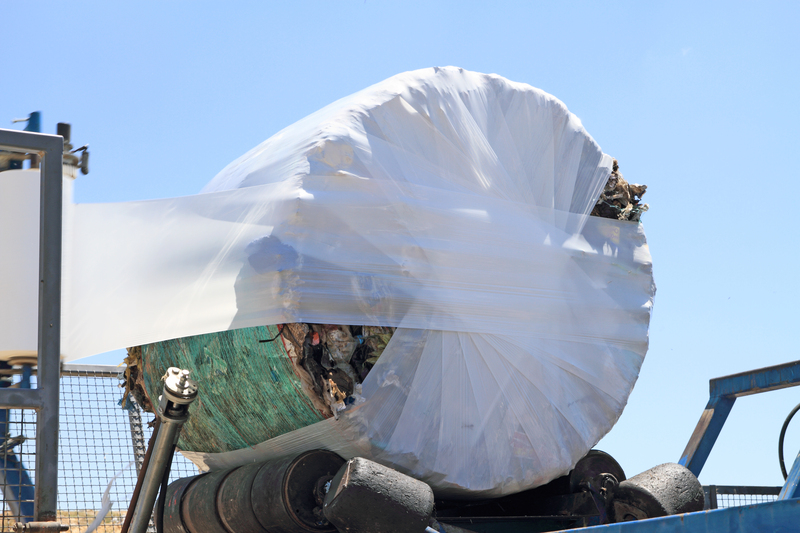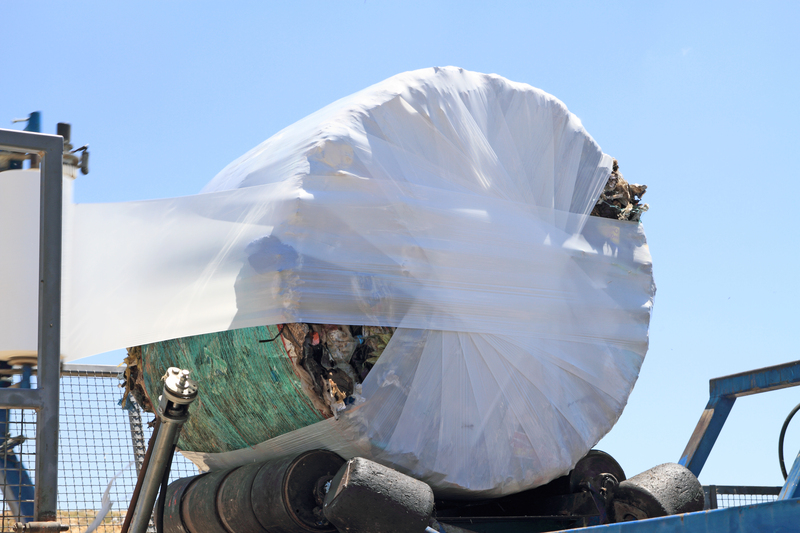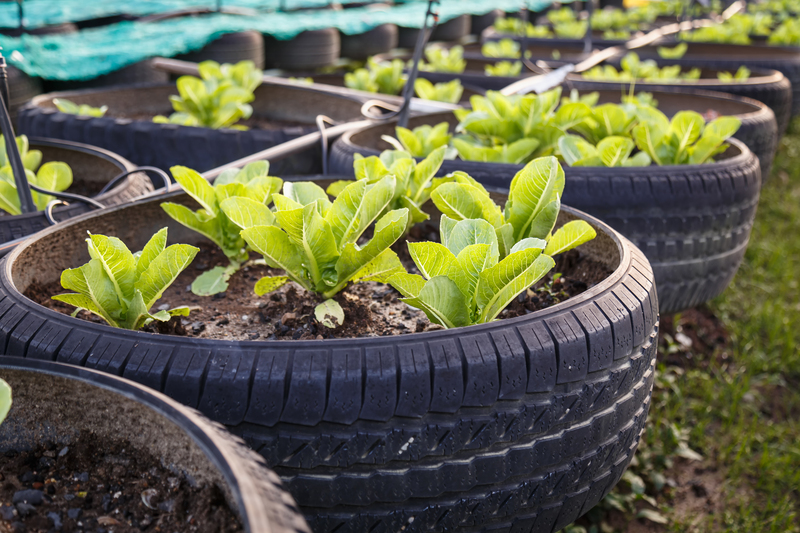Waste London: Sustainable Solutions for a Cleaner Future
Understanding the Urban Waste Challenge
 Waste London has become an evolving subject that integrates environmental responsibility with urban development. In this bustling metropolis, the challenges connected with waste management are multi-dimensional. As the city expands, the strain on landfill sites, recycling centers, and waste treatment facilities has increased dramatically. London’s authorities and local communities are now working hand in hand to address these challenges through innovative strategies, public-private partnerships, and sustainable technologies. The initiatives focus on reducing waste, increasing recycling rates, and implementing eco-friendly practices across all boroughs.
Waste London has become an evolving subject that integrates environmental responsibility with urban development. In this bustling metropolis, the challenges connected with waste management are multi-dimensional. As the city expands, the strain on landfill sites, recycling centers, and waste treatment facilities has increased dramatically. London’s authorities and local communities are now working hand in hand to address these challenges through innovative strategies, public-private partnerships, and sustainable technologies. The initiatives focus on reducing waste, increasing recycling rates, and implementing eco-friendly practices across all boroughs.
Across various districts in London, residents and businesses have embraced a new mindset when it comes to waste management. By prioritizing recycling strategies and engaging in proactive community projects, the city has initiated a long-term transformation. Programs that promote waste segregation, reuse frameworks, and responsible disposal methods are becoming an integral part of London waste strategies. These efforts not only reduce environmental impact but also encourage community involvement and government accountability in environmental stewardship.
 The issue of waste in London has spurred significant innovation, adjusting the traditional approaches to how urban waste is handled. London waste problems are being met with modern solutions such as smart bin sensors, automated collection vehicles, and data-driven recycling programs. Authorities are also leveraging social media and public education campaigns to raise awareness. The benefits of these systems extend beyond improved public cleanliness; they are also essential to reducing greenhouse gas emissions and promoting energy recovery from waste streams.
The issue of waste in London has spurred significant innovation, adjusting the traditional approaches to how urban waste is handled. London waste problems are being met with modern solutions such as smart bin sensors, automated collection vehicles, and data-driven recycling programs. Authorities are also leveraging social media and public education campaigns to raise awareness. The benefits of these systems extend beyond improved public cleanliness; they are also essential to reducing greenhouse gas emissions and promoting energy recovery from waste streams.
The revitalization of waste management practices in the city has stimulated interest among experts worldwide. Academics, environmentalists, and city planners study Waste London initiatives to extract best practices which can be implemented in other metropolitan areas. In-depth research into sustainable waste management has drawn attention to the dynamic interplay between policy reforms and community engagement, emphasizing the importance of interdisciplinary approaches for long-lasting environmental sustainability. The collective efforts in waste reduction not only make urban areas livable but also boost the local economy through innovative recycling industries.
Investment in eco-friendly technology and infrastructure strengthens the urban waste framework. In London, cutting-edge projects that incorporate renewable energy sources into waste treatment plants attract both governmental and private funding. Often, these projects involve creating additional facilities that convert waste into energy safely and efficiently. With these technological advancements, London is setting a benchmark by reducing its reliance on fossil fuels and decreasing carbon footprints associated with waste processing.
Moreover, the concept of zero waste is gradually gaining momentum as diverse initiatives continue to emerge. An increased focus on sustainability has prompted research institutions and local authorities to design better resource management systems. Creating a circular economy model in London means that waste is seen as a resource rather than a burden. Such an approach stimulates innovation and emphasizes a continuous transformation of waste into valuable materials, paving the way for new industrial applications and job opportunities.
Community-led programs have proven indispensable in tackling London waste issues. Grassroots movements and volunteer organizations play a pivotal role in encouraging the city’s inhabitants to reduce, reuse, and recycle. These initiatives often include local clean-up campaigns, recycling workshops, and environmental awareness drives organized in neighborhoods across the capital. By integrating eco-conscious behavior into everyday routines, Londoners help foster a safer and healthier living environment. Their engagement makes a significant difference in consumer behavior and waste output reduction.
The integration of smart technologies in waste management is another critical step towards achieving sustainable urban solutions. Innovative programs such as sensor-based bins, advanced routing for collection trucks, and interactive mobile applications help citizens track their recycling habits while guiding local authorities to optimize waste collection routes. These initiatives create a more efficient system that benefits both the environment and public resources. In this context, the term waste innovation London refers to a range of digitally enabled practices that make waste management more responsive and adaptive to changing urban needs.
 As part of ongoing improvements, councils across London are piloting strategies that blend high technology with traditional methods. These approaches include expanding the use of renewable energy sources in waste treatment and establishing local hubs where citizens can conveniently sort their waste. A combination of eco-friendly policies and state-of-the-art technology results in a robust strategy that extends beyond simple collection; it transforms waste into a valuable resource. The collaborative synergy between technology developers, local government, and the public epitomizes how the city is reimagining its waste management systems.
As part of ongoing improvements, councils across London are piloting strategies that blend high technology with traditional methods. These approaches include expanding the use of renewable energy sources in waste treatment and establishing local hubs where citizens can conveniently sort their waste. A combination of eco-friendly policies and state-of-the-art technology results in a robust strategy that extends beyond simple collection; it transforms waste into a valuable resource. The collaborative synergy between technology developers, local government, and the public epitomizes how the city is reimagining its waste management systems.
Examining the economic aspects of waste management reveals a sector ripe with potential investments and job creation opportunities. London has become a hotspot for entrepreneurs in the recycling and renewable energy fields, leading to the emergence of a vibrant green economy. Policies supporting sustainable waste initiatives encourage new markets to flourish, creating innovative business models that focus on circular economy principles. The city’s diverse economy, paired with a forward-thinking approach to waste, is paving new pathways toward sustainable urban development.
Local government agencies are continuously refining Waste London strategies to support broad economic and social objectives. Bipartisan efforts have emerged to invest in sustainable infrastructure that brings not only environmental benefits but also economic advantages. Innovative recycling programs have attracted private investors eager to participate in green technology, thus promoting indigenous industrial development. As a result, numerous start-ups and established companies blend cutting-edge technology with eco-friendly practices, which improves operational efficiency while reducing the environmental footprint.
The financial rewards of comprehensive waste management are supported by detailed economic analyses that forecast positive returns on these investments. Numerous studies highlight that effective resource management, when aligned with public policies, can lead to substantial savings in governmental expenditures. In addition, the emerging green technology market presents lucrative opportunities for local entrepreneurs seeking to innovate in the waste processing field. With both economic and environmental wins at stake, the success of London’s waste management model serves as a beacon for other urban centers looking to adopt similar practices.
Education and public awareness form the backbone of London’s sustainability initiatives. Numerous programs in schools, universities, and community centers focus on raising awareness about proper waste disposal and resource conservation. These educational campaigns help cultivate environmental stewardship among young Londoners and reinforce the city’s commitment to a sustainable future. By incorporating environmental education into the regular curriculum, the city fosters a culture where waste management is recognized as an essential component of daily life.
Initiatives aimed at reducing packaging waste and single-use plastics have also received widespread attention. The introduction of innovative systems that encourage consumers to use reusable materials is a transformative step towards reducing waste generation. Collaboration with local businesses enables the promotion of sustainable packaging and greener product alternatives. This business-led approach, supported by local government, shows promise in achieving significant reductions in non-recyclable waste streams.
The cultural shift towards sustainability is reflected in the diverse art installations and public exhibits found throughout London. These creative projects not only beautify urban areas but also serve as educational platforms that inform citizens about waste reduction strategies and environmental protection. In many neighborhoods, murals and sculptures created from recycled materials stand as a testament to London’s proactive stance on environmental issues, inspiring both residents and visitors to consider their impact on the natural world.
Several success stories emerge from London’s localized projects that demonstrate remarkable improvements in waste handling practices. Community recycling hubs, for example, have helped reduce the volume of waste sent to landfills by transforming discarded materials into commercially viable resources. The implementation of these hubs throughout the city has significantly improved waste logistics while providing local employment opportunities and stimulating social entrepreneurship. These achievements verify that strategic investments in waste management methodologies can indeed lead to measurable societal improvements.
Local innovators are also exploring the use of bio-digesters and anaerobic digestion to convert organic waste into renewable energy. London’s sustainable waste initiatives are continuously evolving to include these eco-technologies, which facilitate the efficient conversion of natural waste into energy forms. Through the collaboration of research institutions and municipal bodies, London has positioned itself as one of the pioneers in renewable energy production from waste materials. This progressive approach demonstrates the potential benefits of integrating sustainable technology into urban waste management strategies.
 Not only do these innovations help mitigate environmental degradation, but they also contribute significantly to lowering municipal operating costs. By implementing diverse strategies in waste reduction and recycling, the city can respond more dynamically to fluctuations in waste volume and composition. The results of these projects are evident in reduced landfill dependency, decreased carbon emissions, and enhanced overall community health. This multidimensional view of waste management in London underscores how modern technology and proactive governance can align to create a cleaner, safer urban environment.
Not only do these innovations help mitigate environmental degradation, but they also contribute significantly to lowering municipal operating costs. By implementing diverse strategies in waste reduction and recycling, the city can respond more dynamically to fluctuations in waste volume and composition. The results of these projects are evident in reduced landfill dependency, decreased carbon emissions, and enhanced overall community health. This multidimensional view of waste management in London underscores how modern technology and proactive governance can align to create a cleaner, safer urban environment.
The continuous evolution of waste management in London is not without its challenges. Critics often highlight issues such as budget constraints, logistical inefficiencies, and occasional resistance from local communities. Nonetheless, the persistent drive toward awareness and technological innovation remains a hallmark of the city’s approach to sustainable waste management. Authorities continue to monitor and adapt strategies to best suit the dynamic nature of urban waste and to mitigate any unforeseen obstacles that arise along the implementation phase.
Robust public consultation frameworks have been introduced to ensure that all voices are heard in the evolution of these policies. Through town halls, community forums, and digital surveys, London’s administrators ensure that the proposed waste management programs are both effective and inclusive. Innovative waste London policies are now frequently discussed among community members, policy makers, and industry experts alike, fostering a spirit of collaboration that enhances the overall quality and resilience of the system. This transparent approach builds trust between the government and its citizens, a crucial factor for long-term sustainability.
 The final vision for waste management in London encompasses a fully integrated system that is adaptive, efficient, and economically beneficial. An amalgamation of technology, community effort, and progressive legislation paints a promising picture of the future. With strategic plans to enhance recycling rates, divert waste from landfills, and generate renewable energy, London is positioning itself as a global leader in sustainable urban management. The legacy of these initiatives is expected to serve as a model for other metropolitan regions worldwide, marking a significant milestone in the journey toward environmental resilience and urban renewal.
The final vision for waste management in London encompasses a fully integrated system that is adaptive, efficient, and economically beneficial. An amalgamation of technology, community effort, and progressive legislation paints a promising picture of the future. With strategic plans to enhance recycling rates, divert waste from landfills, and generate renewable energy, London is positioning itself as a global leader in sustainable urban management. The legacy of these initiatives is expected to serve as a model for other metropolitan regions worldwide, marking a significant milestone in the journey toward environmental resilience and urban renewal.











